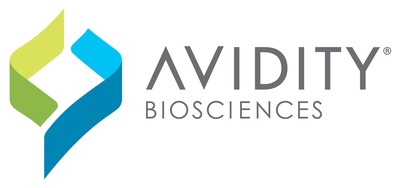Avidity Biosciences Enters Into Collaboration with FSHD Clinical Trial Network to Support Development of Biomarkers for Future Clinical Trial Use
Avidity Biosciences (RNA) announced a partnership with the Facioscapulohumeral Muscular Dystrophy Clinical Trial Research Network to support the MOVE+ study. This initiative aims to enhance understanding of FSHD through whole-body MRI and biomarkers, focusing on accelerating clinical trial designs. Avidity is sponsoring 100 participants in the US to gather crucial data, as highlighted by CEO Sarah Boyce. This study could lead to significant advancements in patient care and therapeutic development for FSHD.
- Collaboration with FSHD CTRN could enhance clinical trial designs.
- MOVE+ study aims to identify biomarkers for FSHD, potentially impacting future therapies.
- None.
Insights
Analyzing...
LA JOLLA, Calif., Aug. 16, 2021 /PRNewswire/ -- Avidity Biosciences, Inc. (Nasdaq: RNA), a biopharmaceutical company committed to delivering a new class of RNA therapeutics called Antibody Oligonucleotide Conjugates (AOCs™), today announced its collaboration with the Facioscapulohumeral Muscular Dystrophy (FSHD) Clinical Trial Research Network (FSHD CTRN) to support a natural history study for people living with FSHD called the Motor Outcomes to Validate Evaluations Plus (MOVE+) Study.
MOVE+ is a sub-study of the ongoing natural history study called Motor Outcomes to Validate Evaluations in FSHD (MOVE FSHD). Avidity is sponsoring 100 participants to enroll in the MOVE+ sub-study in the US. The goal of MOVE+ is to enhance the community's understanding of how to utilize whole-body MRI and other tools to identify specific biomarkers for FSHD that can accelerate and support future clinical trial design.
"We are committed to support this critically important work and the FSHD community as we work in concert to further understand this devastating disease," said Sarah Boyce, president and CEO of Avidity. "The MOVE+ study will provide important insight into the predictive nature of MRI biomarkers and inform our clinical development program for FSHD."
"Because FSHD is a complex disease that manifests intermittently in different muscles, it is challenging to design clinical studies that have impactful endpoints and that can enroll participants with active disease," said Jeffrey Statland, M.D., professor, Department of Neurology, University of Kansas Medical Center. "By expanding our knowledge of biomarkers and their relation to disease progression, MOVE and MOVE+ could have a direct and immediate impact on patient care and inform future research and development of new therapies for people living with FSHD."
The FSHD CTRN is a group of 18 academic research centers across the United States and Europe, with expertise in FSHD clinical research or in conducting neuromuscular clinical trials. It was formed with early support and encouragement from the FSHD Society, the Muscular Dystrophy Association, Friends of FSH Research as well as other stakeholders in the patient community. FSHD CTRN helps to close gaps in trial readiness and provides a network of sites with centralized streamlined regulatory process, common expertise in FSHD, and an engaged patient population ready to participate in high quality clinical trials.
Mark Stone, Chief Executive Officer of the FSHD Society stated, "It is so encouraging to see such active engagement and collaboration from the FSHD CTRN, the patient and advocacy community and industry leaders like Avidity. The launch of the MOVE+ study is an important milestone as we advance toward our shared goal of delivering meaningful treatments to counteract the effects of this devastating disease."
About the FSHD Society
The FSHD Society is the world's largest research-focused patient advocacy organization for facioscapulohumeral muscular dystrophy (FSHD), one of the most prevalent forms of muscular dystrophy. The Society has catalyzed major advancements and is accelerating the development of treatments and a cure to end the pain, disability, and suffering endured by one million people worldwide who live with FSHD. The FSHD Society has transformed the landscape for FSHD research and is committed to making sure that no one faces this disease alone. The Society offers a community of support, news, and information through its website at https://www.fshdsociety.org.
About FSHD Clinical Trial Research Network
The Facioscapulohumeral Muscular Dystrophy Clinical Trial Research Network (FSHD CTRN) is a consortium of 18 academic research centers (12 in the United States, five in continental Europe and one in the United Kingdom) with expertise in FSHD clinical research, or in conducting neuromuscular clinical trials. These centers leverage existing clinical trials infrastructure: including clinical investigators, research coordinators, study evaluators, and institutional resources like Clinical and Translational Science Awards (CTSAs) and local Research Institutes for clinical trial budget and contracting, and Clinical Research Centers, which provide subsidized clinical research space and facilities. The FSHD CTRN helps close gaps in trial readiness, and also provides a network of sites with a centralized streamlined regulatory process, specific, common expertise in FSHD, and an engaged patient population ready to conduct efficient, high quality clinical trials. Click here for more information on the FSHD CTRN.
About Avidity Biosciences
Avidity Biosciences, Inc.'s mission is to profoundly improve people's lives by delivering a new class of RNA therapeutics - Antibody Oligonucleotide Conjugates (AOCs™). Avidity's proprietary AOCs are designed to combine the specificity of monoclonal antibodies with the precision of oligonucleotide therapies to target the root cause of diseases previously untreatable with RNA therapeutics. Avidity's lead product candidate, AOC 1001, is designed to treat myotonic dystrophy type 1 (DM1). The FDA has cleared Avidity to proceed with the Phase 1/2 MARINA™ trial of AOC 1001 in adults with DM1. Its advancing and expanding pipeline also includes programs in facioscapulohumeral muscular dystrophy (FSHD), Duchenne Muscular Dystrophy (DMD), muscle atrophy and Pompe disease. The company is planning for AOC 1044, the lead of three programs for the treatment of DMD, and its AOC FSHD program to enter the clinic in 2022. Avidity is also broadening the reach of AOCs beyond muscle tissues through both internal discovery efforts and key partnerships as the company continues to deliver on the RNA revolution. Avidity is headquartered in La Jolla, CA. For more information about our science, pipeline and people, please visit www.aviditybiosciences.com and engage with us on LinkedIn and Twitter.
Forward-Looking Statements
Avidity cautions readers that statements contained in this press release regarding matters that are not historical facts are forward-looking statements. These statements are based on our current beliefs and expectations. Such forward-looking statements include, but are not limited to, statements regarding: the potential of FSHD natural history studies including the MOVE and MOVE+ studies to impact clinical development. The inclusion of forward-looking statements should not be regarded as a representation by Avidity that any of our plans will be achieved. Actual results may differ from those set forth in this press release due to the risks and uncertainties inherent in our business, including, without limitation: we are early in our development efforts and our FSHD development programs are in the preclinical or discovery stage; our approach to the discovery and development of product candidates for the treatment of FSHD based on our AOC platform is unproven, and we do not know whether we will be able to develop any products of commercial value; potential delays in the commencement, enrollment and completion of clinical trials; disruption to our operations from the COVID-19 pandemic; the success of our preclinical studies and clinical trials for our product candidates; the results of preclinical studies and early clinical trials are not necessarily predictive of future results; our dependence on third parties in connection with preclinical testing and product manufacturing; unexpected adverse side effects or inadequate efficacy of our product candidates that may limit their development, regulatory approval and/or commercialization, or may result in recalls or product liability claims; regulatory developments in the United States and foreign countries, including acceptance of INDs and similar foreign regulatory filings and our proposed design of future clinical trials; risks related to integration of new personnel; and other risks described in our prior press releases and in our filings with the Securities and Exchange Commission (SEC). Avidity cautions readers not to place undue reliance on these forward-looking statements, which speak only as of the date hereof, and we undertake no obligation to update such statements to reflect events that occur or circumstances that exist after the date hereof. All forward-looking statements are qualified in their entirety by this cautionary statement, which is made under the safe harbor provisions of the Private Securities Litigation Reform Act of 1995.
Company & Investors Contact:
Kath Gallagher
kath.gallagher@aviditybio.com
858-401-7900 ext 550
Media Contact:
Cherise Adkins
cadkins@spectrumscience.com
(301) 267-4161
![]() View original content to download multimedia:https://www.prnewswire.com/news-releases/avidity-biosciences-enters-into-collaboration-with-fshd-clinical-trial-network-to-support-development-of-biomarkers-for-future-clinical-trial-use-301355221.html
View original content to download multimedia:https://www.prnewswire.com/news-releases/avidity-biosciences-enters-into-collaboration-with-fshd-clinical-trial-network-to-support-development-of-biomarkers-for-future-clinical-trial-use-301355221.html
SOURCE Avidity Biosciences, Inc.








